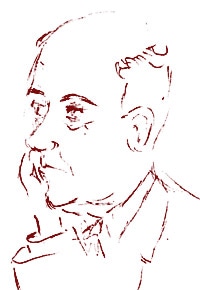 Resolving Disputes:
Resolving Disputes:
I am now retired and I do not actively practice law. But many years of adversary litigation taught me:
The best way for you to resolve a legal dispute is to avoid it and if it gets going, get it mediated to a mutually acceptable conclusion. I favor mediation and have acted as a mediator. I completed mediation training and, in 2012, advanced mediation training. A recent mediation I facilitated resulted in these comments:
“Thank you so much for your wonderful work in getting the parties to an agreement yesterday. Instead of the usual compromise that leaves both parties feeling like they lost, this time each party left feeling they had won. I am convinced that the case could not have settled without your expertise.” – Laura Lane, Attorney at Law.
“Mr. Lee: I am compelled to exclaim in most enthusiastic terms how impressed we all are with your knowledge and mediation skills, not to mention being an all ‘round nice guy. We thank you so much for your heroic efforts, not just in the mediation… Nice to come across a real professional every once in a while.” – Marc Janowitz, Attorney at Law.
“Thank you for all your work on this very difficult problem, without your help we would be in court…” – A party to a successful mediation.
Talk to your lawyer First:
Sometimes disputes are intractable, highly charged and complicated. We turn to law to resolve such disputes when we cannot resolve them for ourselves. The law is the primary instrument of government and as George Washington said: “Government is not reason, it is not eloquence — it is force! Like fire, it is a dangerous servant and a fearful master.” Yet the American passion for liberty has its context in sovereignty. The commands of the sovereign are its laws. My legal advice was always: obey the law and pay your taxes.
That, however, is the beginning of the discussion. The reason you want to talk to a lawyer is so that the rest of the discussion can be, forever, privileged and confidential. Your disclosures and even admissions to your lawyer cannot be compelled into testimony.
We sometimes underestimate the pervasive power of the law, and worse, sometimes fail to take appropriate counsel to preserve rather than risk liberty and its benefits. The Constitution itself makes paramount: Life, Liberty and Property. The phrase of the Declaration, the “pursuit of happiness,” is but a declaration of our continuing practice of the arts of happiness as we may choose to do so. The sovereign’s protection of our Life, Liberty and Property enables our pursuits of happiness.
Yet when the sovereign purports to do more, purports to have the power to do more, than protect Life, Liberty and Property, liberty is compromised. When this unhappy circumstance obtains, by state action or through the instrumentalities of the state, such as the courts, legal counsel and legal representation, all too often in hard-fought litigation, are critical to success and sometimes survival. So, too, knowing how to use the law for remedies and a measure of justice is to know how rightly to employ the powers of the sovereign. In any circumstance, before you do anything drastic, talk to your lawyer first.

Bart Lee